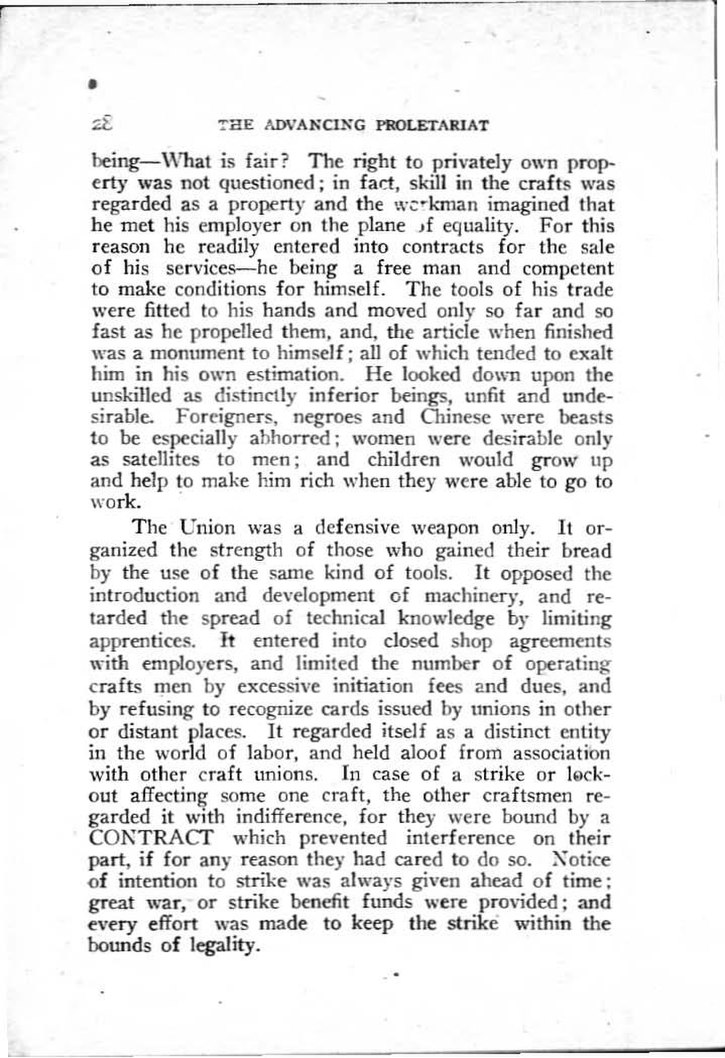being—What is fair? The right to privately own property was not questioned; in fact, skill in the crafts was regarded as a property and the workman imagined that he met his employer on the plane of equality. For this reason he readily entered into contracts for the sale of his services—he being a free man and competent to make conditions for himself. The tools of his trade were fitted to his hands and moved only so far and so fast as he propelled them, and, the article when finished was a monument to himself; all of which tended to exalt him in his own estimation. He looked down upon the unskilled as distinctly inferior beings, unfit and undesirable. Foreigners, negroes and Chinese were beasts to be especially abhorred; women were desirable only as satellites to men; and children would grow up and help to make him rich when they were able to go to work.
The Union was a defensive weapon only. It organized the strength of those who gained their bread by the use of the same kind of tools. It opposed the introduction and development of machinery, and retarded the spread of technical knowledge by limiting apprentices. It entered into closed shop agreements with employers, and limited the number of operating crafts men by excessive initiation fees and dues, and by refusing to recognize cards issued by unions in other or distant places. It regarded itself as a distinct entity in the world of labor, and held aloof from association with other craft unions. In case of a strike or lockout affecting some one craft, the other craftsmen regarded it with indifference, for they were bound by a CONTRACT which prevented interference on their part, if for any reason they had cared to do so. Notice of intention to strike was always given ahead of time; great war, or strike benefit funds were provided; and every effort was made to keep the strike within the bounds of legality.
